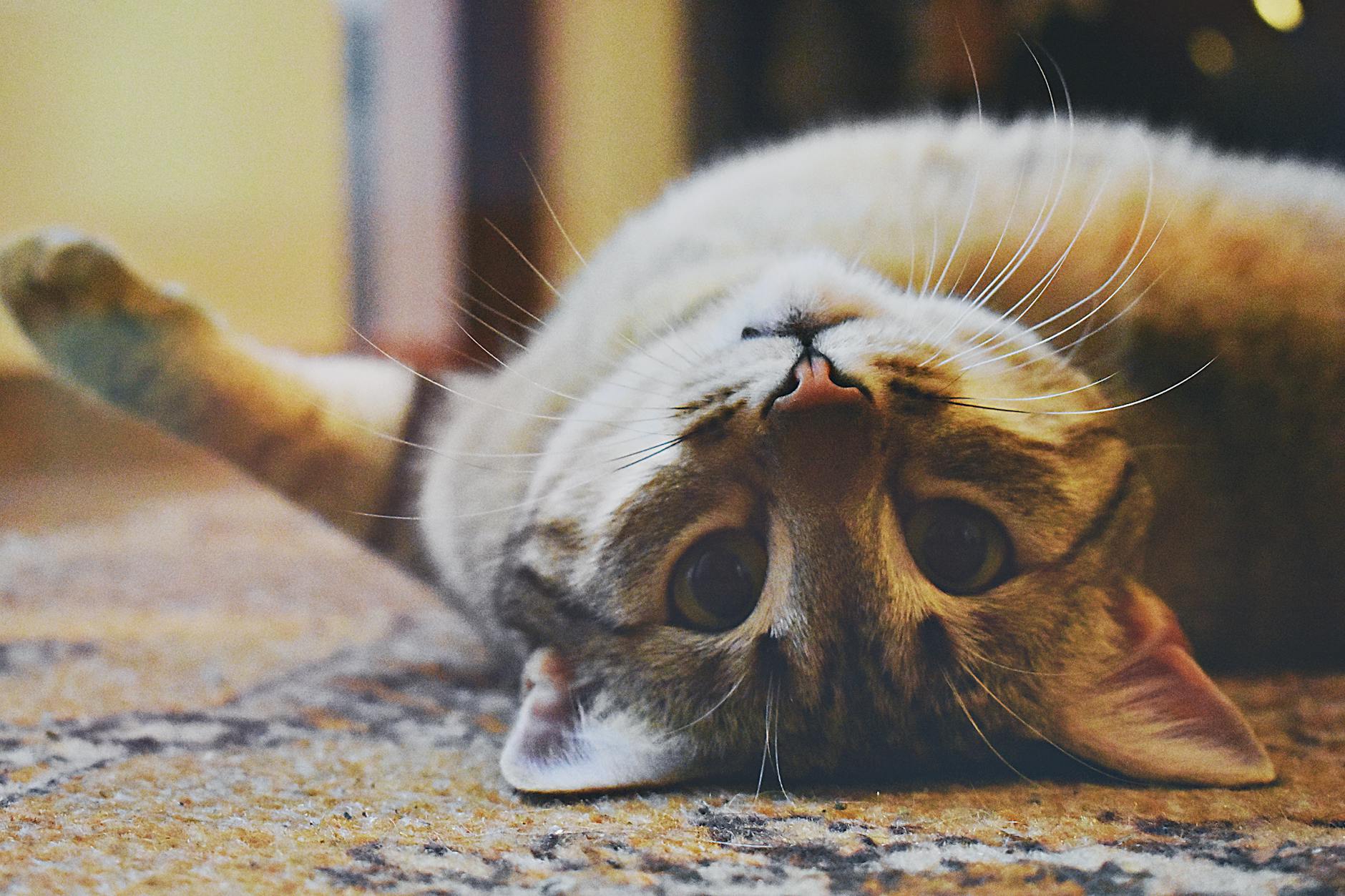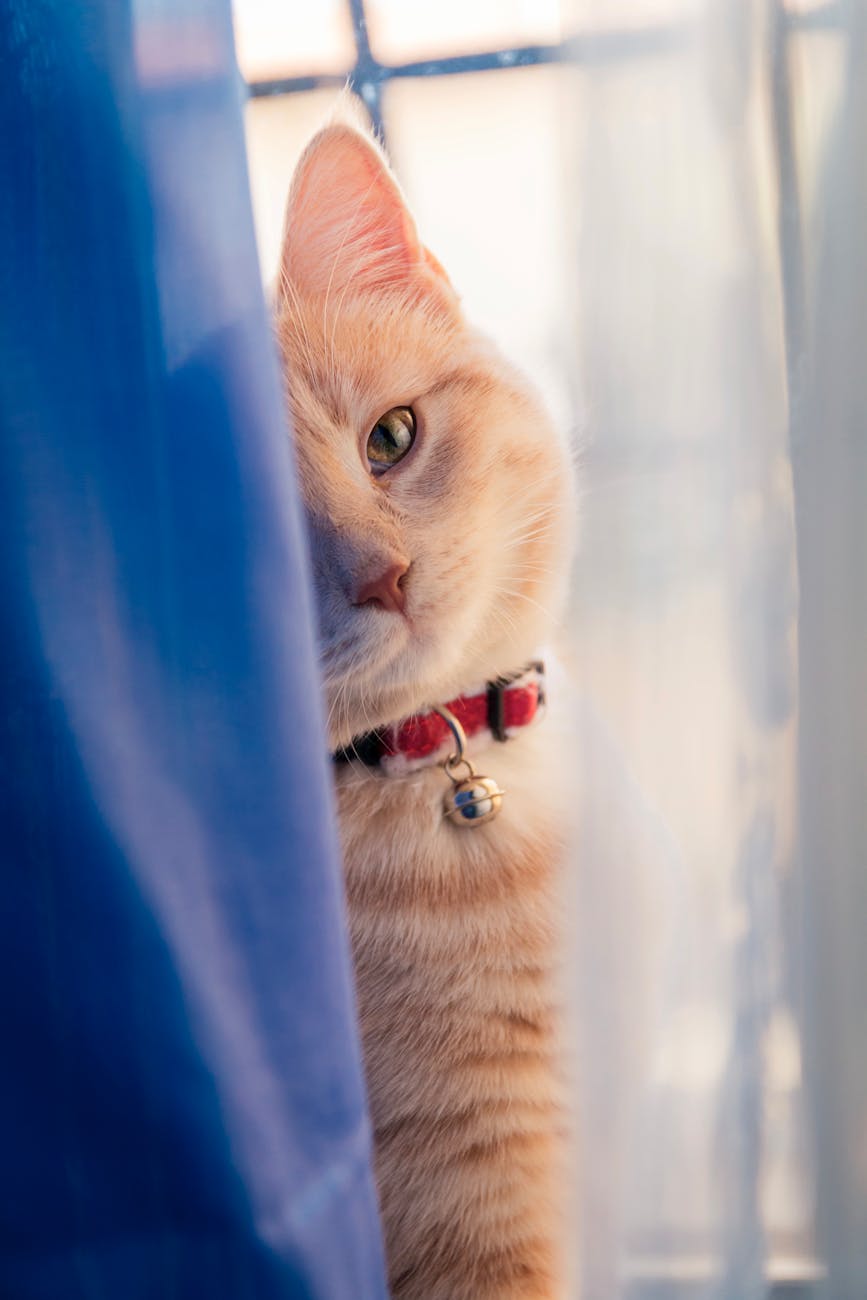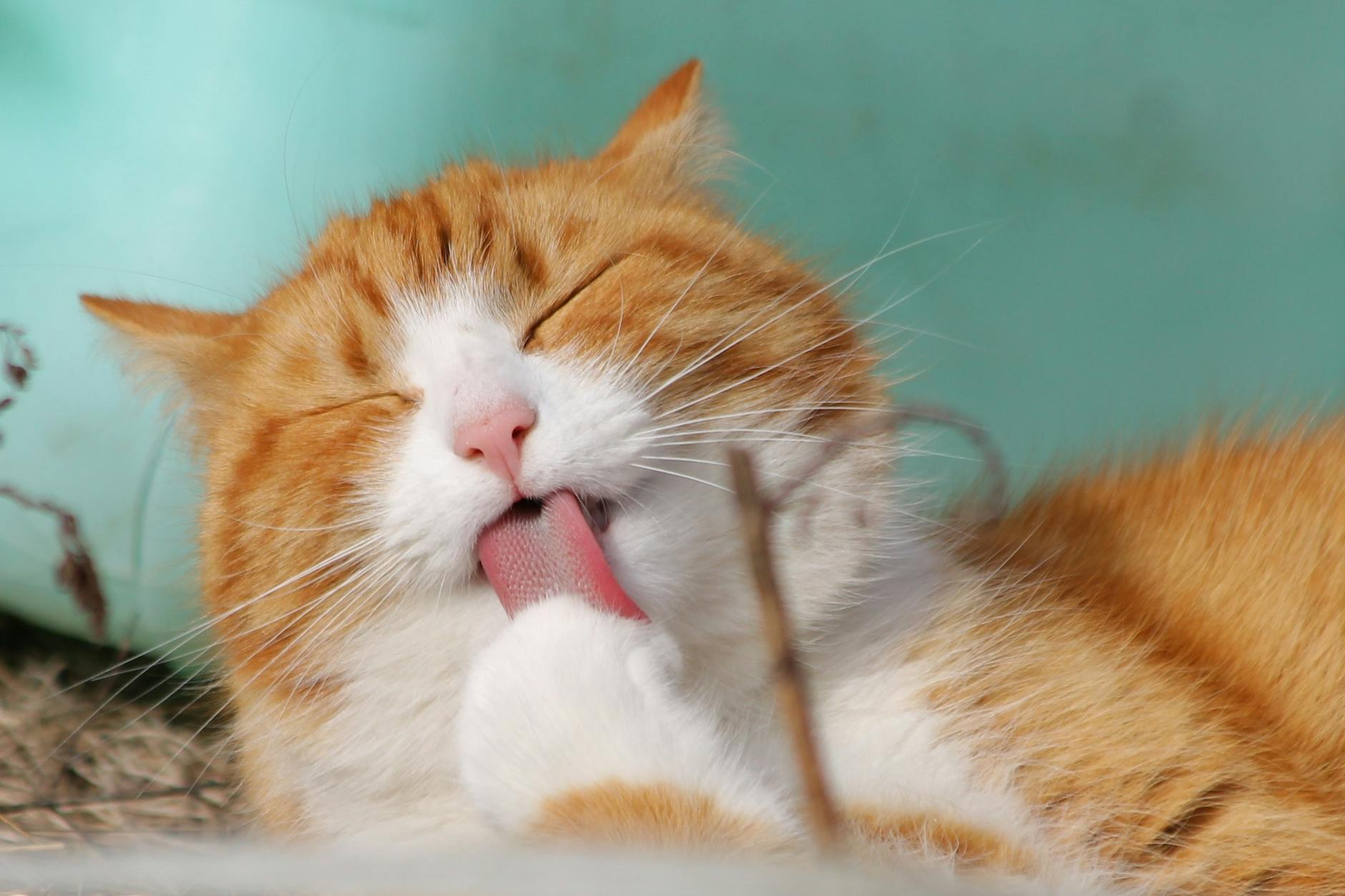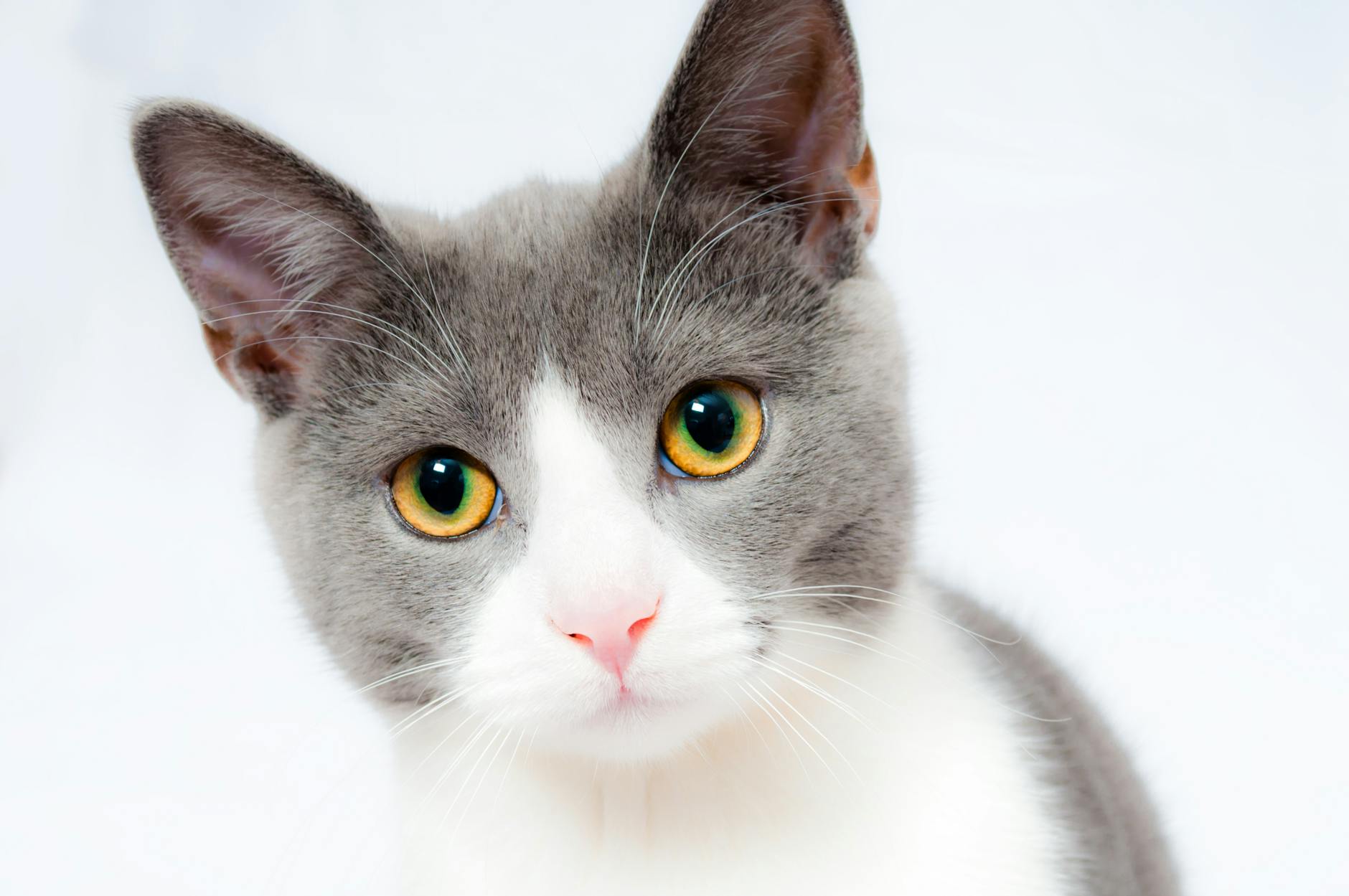Cats, like humans, can occasionally sneeze, raising the question, "why is my cat sneezing?" While a rare sneeze may not be concerning, frequent sneezing can indicate underlying health issues. Various factors contribute to this behavior, including allergies, respiratory infections, and irritants in their environment. Understanding the common causes not only helps cat owners identify potential problems but also informs them about effective remedies and preventive measures. In this guide, we will explore these factors and help you ensure your feline friend stays healthy and comfortable.
Understanding Cat Sneezing: An Overview
When you notice your cat sneezing, it’s natural to wonder, "why is my cat sneezing?" Sneezing acts as a cough for our feline friends, helping them expel irritants from their nasal passages.
Here’s a brief overview of cat sneezing:
- Normal Behavior: Just like humans, cats sneeze occasionally. It may be a response to dust or sudden changes in temperature.
- Underlying Issues: Frequent sneezing might indicate underlying health problems, such as allergies or infections.
Key points to remember:
- A single sneeze isn’t usually alarming; however, watch for:
- Increased frequency of sneezing
- Nasal discharge (clear or colored)
- Additional symptoms (coughing, wheezing, or lethargy)
If your cat’s sneezing persists, asking yourself, "why is my cat sneezing?" becomes crucial. Keeping a log of their sneezing episodes and related symptoms will aid your veterinarian in diagnosing any potential issues. Being proactive ensures your furry friend stays healthy and happy!

Common Causes of Sneezing in Cats
When pondering why is my cat sneezing, it’s essential to recognize the various underlying causes. Cats may sneeze due to several reasons, including:
- Allergies: Dust, pollen, and certain household chemicals can irritate their nasal passages, leading to sneezing.
- Infections: Viral or bacterial infections can cause respiratory issues, making sneezing a common symptom.
- Foreign Bodies: Small objects like grass or dirt may get lodged in your cat’s nose, triggering a sneeze reflex.
- Dental Issues: Problems like tooth decay can lead to sinus infections, causing sneezing.
- Environmental Factors: Changes in temperature or humidity can also contribute to sneezing.
Understanding these common causes can help you determine what may be affecting your furry friend. If your feline companion frequently sneezes, ask yourself: "Why is my cat sneezing?" This inquiry can assist you in identifying possible allergens or triggers in their environment. Monitor their sneezing patterns and consult a veterinarian if the behavior persists.
Allergies and Environmental Factors
When it comes to the question of why is my cat sneezing, allergies and environmental factors play a significant role. Just like humans, cats can have allergic reactions to various substances in their surroundings. Here’s a quick rundown of common triggers:
- Pollen: Seasonal changes can introduce various pollen types that irritate your cat’s respiratory system.
- Dust and Dust Mites: Common in homes, these tiny particles can provoke sneezing fits.
- Mold Spores: Damp areas can lead to mold growth, which may cause allergic responses.
- Household Cleaners: Strong chemicals and scents can irritate your cat’s sensitive nose.
Signs of Allergies Include:
- Frequent sneezing
- Nasal discharge
- Itchy skin or excessive grooming
To alleviate symptoms, you might consider:
- Air Purifiers: Help reduce airborne allergens.
- Regular Cleaning: Decrease dust build-up in your home.
- Avoiding Strong Scents: Use unscented products whenever possible.
Understanding these factors can provide clarity on why is my cat sneezing, helping you create a more comfortable environment for your feline companion.
Respiratory Infections and Illnesses
When considering why is my cat sneezing, one common culprit is respiratory infections. These conditions can lead to sneezing as a primary symptom along with other indications. Here are some key points to understand:
Feline Viral Rhinotracheitis (FVR): Caused by the feline herpesvirus, this illness leads to severe respiratory distress. Symptoms include sneezing, nasal discharge, and coughing.
Calicivirus: Another viral infection, calicivirus can cause sneezing, alongside oral ulcers and fevers.
Bacterial Infections: Secondary bacterial infections may arise after a viral infection. They often present with thick, green nasal discharge and increased sneezing frequency.
Signs to Observe
If your cat exhibits:
- Persistent Sneezing: Frequent sneezing that lasts for days.
- Nasal Discharge: Mucus that is yellow or green.
- Loss of Appetite: Not eating or drinking normally.
Always consult a veterinarian if you notice these signs. Prompt diagnosis and treatment help resolve these health issues, addressing the question, why is my cat sneezing effectively.

Foreign Bodies and Irritants
When you ponder why is my cat sneezing, it could be due to foreign bodies or irritants. Cats are naturally curious creatures, often exploring their surroundings by sniffing and pawing at various objects. This behavior can lead to exposure to substances that provoke sneezing.
Common irritants include:
- Dust and pollen: These common allergens can trigger sneezing fits.
- Strong fragrances: Air fresheners, perfumes, and scented candles can irritate a cat’s sensitive nose.
- Smoke: Whether from cigarettes or cooking, smoke can cause significant respiratory distress.
- Chemical cleaners: Harsh chemicals used for cleaning can heighten sensitivity in cats.
Signs that a foreign body is present:
- Persistent sneezing
- Nasal discharge (clear or colored)
- Pawing at the face
If you notice these symptoms, it’s crucial to determine the source of irritation. If the sneezing continues or worsens, consulting a veterinarian becomes essential. Addressing why is my cat sneezing due to foreign bodies or irritants often requires professional evaluation and removal to ensure your feline’s health and comfort.
When to Consult a Veterinarian
If you’re pondering why is my cat sneezing, it’s essential to monitor the situation. While occasional sneezing can be normal, certain signs indicate it’s time for a veterinary visit. Consider the following scenarios:
- Persistent Sneezing: If your cat sneezes for more than a few days without improvement, it’s worth investigating.
- Green or Yellow Discharge: Unusual nasal discharge may point to an infection, requiring professional evaluation.
- Coughing or Wheezing: Accompanying respiratory issues signal potential respiratory infections or other serious conditions.
- Loss of Appetite: If your cat isn’t eating well, it may indicate discomfort or illness that needs addressing.
- Fever or Lethargy: Noticeable changes in behavior or energy levels can often signify underlying health problems.
- Difficulty Breathing: Struggling to breathe warrants immediate veterinary attention.
In summary, understanding why is my cat sneezing helps you determine when it’s time to seek help. Always trust your instincts; your vet can provide the best support for your furry friend.
Home Remedies for Sneezing Cats
If your furry friend is sneezing, you might wonder, "why is my cat sneezing?" While it’s essential to monitor your cat’s health, there are some home remedies that can alleviate sneezing and discomfort:
Humidity: Increase the moisture in the air using a humidifier. This helps soothe irritated nasal passages and eases sneezing.
Steam Therapy: Create a steam-filled bathroom by running a hot shower. Bring your cat into the room for a brief period to inhale the steam safely.
Gentle Nasal Cleansing: Use a damp cotton ball to wipe your cat’s nose gently. This helps remove any irritants or discharge.
Holistic Remedies: Herbal remedies, such as chamomile or slippery elm, can help reduce nasal inflammation. Always consult your vet before introducing new herbs.
Diet Supplements: Adding omega-3 fatty acids to your cat’s diet may enhance immune function.
Remember, if your cat’s sneezing persists, particularly if accompanied by other symptoms, consulting a veterinarian is crucial. This way, you can better understand why is my cat sneezing and find appropriate treatment.

Preventive Measures to Reduce Sneezing
If you’re wondering why is my cat sneezing, taking preventive measures can play a significant role in reducing this issue. Here are some effective strategies you can implement:
Maintain a Clean Environment: Regularly clean your home to minimize dust and allergens. Use HEPA filters in your vacuum and air purifiers to trap particles.
Limit Exposure to Allergens: Identify and remove potential allergens like pollen, mold, and strong fragrances. Opt for unscented cleaning products and avoid smoking indoors.
Regular Vet Check-ups: Schedule routine veterinary visits to ensure your cat’s overall health. Early detection of health issues can prevent sneezing caused by infections.
Vacuum and Dust Regularly: Keep your house clean by vacuuming carpets and furniture frequently. This helps reduce dust and dander that can irritate your cat’s respiratory system.
Monitor Changes: Pay attention to any changes in your cat’s environment or diet. If sneezing occurs along with other symptoms, it might indicate an underlying problem.
By following these preventive measures, you can significantly minimize the risk of your cat sneezing. Ultimately, this enhances their quality of life while addressing your concern about why is my cat sneezing.
Frequently Asked Questions
What are the common causes of sneezing in cats?
Sneezing in cats can be attributed to various factors. These include upper respiratory infections, which are often viral, allergens such as pollen, dust, or mold, or irritants like smoke and strong perfumes. Dental issues, such as oral infections, may also cause sneezing, as they can be linked to sinus problems. If your cat is sneezing frequently, it’s important to consult a veterinarian to determine the underlying cause.
Should I be concerned if my cat is sneezing?
While occasional sneezing in cats is typically not a cause for concern, persistent sneezing or sneezing accompanied by other symptoms like nasal discharge, coughing, or changes in appetite may indicate a more serious health issue. It’s essential to observe your cat’s overall behavior and health. If you notice any worrying signs, seeking veterinary advice is advisable to ensure your cat’s well-being.
What home remedies can I use to help my sneezing cat?
There are several home remedies you can try to alleviate your cat’s sneezing. Ensuring your cat stays hydrated is crucial—fresh water should always be available. A humidifier can help clear the airways and ease irritation. Additionally, gentle steam therapy in a bathroom can also be beneficial. However, it’s important to never use medications without veterinary guidance, as some can be harmful to cats.
When should I take my sneezing cat to the vet?
If your cat’s sneezing is persistent, or if it is accompanied by other symptoms such as lethargy, loss of appetite, coughing, or nasal discharge, it is advisable to schedule a visit to the veterinarian. Other red flags include any signs of difficulty breathing or if your cat is experiencing a significant change in its overall health. Early intervention can be crucial in addressing any potential underlying causes.



